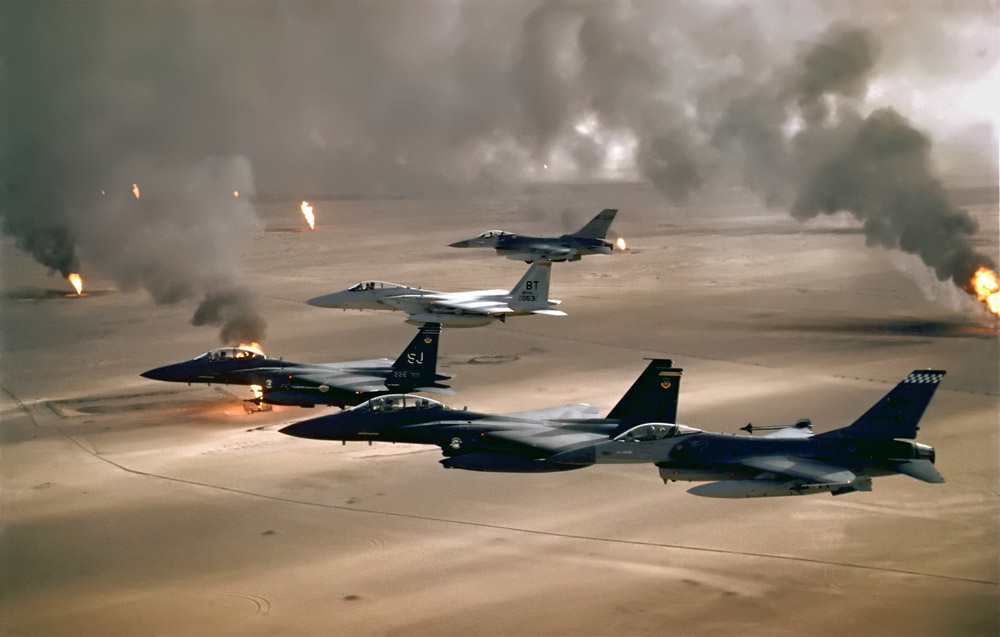
- Gulf of Persia, 28 February 1991 The First Gulf War ended with the victory of the US-led coalition. In that war, the media became strategic weapons to reinforce the new concept of "clean war" and to ensure that public opinion gave legitimacy to the attacks.

Gulf of Persia, 28 February 1991 The First Gulf War ended with the victory of the US-led coalition. The conflict began a few months earlier, when the Iraqis invaded Kuwait on 2 August. The coalition's bombardments began with air and water on 17 January 1991 and, finally, on 24 February, ground attacks began to end Operation Desert Storm.
It is clear here and there that the First Gulf War was the first time the conflict was broadcast on television, the first time the news was broadcast directly from the front. Historian and journalist Alejandro Pizarroso, for his part, believes that “it was not a televised war, perhaps the least televised of all wars since television was invented, despite having accomplished hours and hours in programming all the world’s television channels”.
It is difficult to believe that the information came directly from the front, knowing that the exclusivity of the transmission of the war was in the hands almost exclusively of the American chain CNN and the possibilities of outsourcing information to the Iraqi media. The United States did not want to see a repeat of what happened in Vietnam. There, all accredited international media were able to receive information from both Vietcong and the United States Army. They had to bypass the dark account of the defeat of Vietnam and mount the story of a clean and fast victory.
They bombarded public opinion with images that resemble video games and technological and cold data: the coalition had 959,600 military, 2,000 tanks, F-117 A Nighthawk or F-4G Wild Weasel, the AH-64 Apache and AH-1 Cobra helicopters, only with these military objectives and fundamental objectives. CNN did not report that there were indiscriminate attacks on the civilian population, that on 14 February two missiles killed more than 400 civilians in Baghdad, that the following day caused dozens of deaths in a Fallujah market… or that the bombings caused a major ecological disaster: over 300 oil lakes that contaminated 40 million tonnes of land.
During the First Gulf War, the media became strategic weapons to strengthen the new concept of net war and to ensure that public opinion gave legitimacy to the attacks. The writer Juan Goytisolo (1931-2017) said in 2003, on the eve of the Second Gulf War: As in 1991, it will not be an image of what actually happens, but a video-war shot in study and added to special effects”